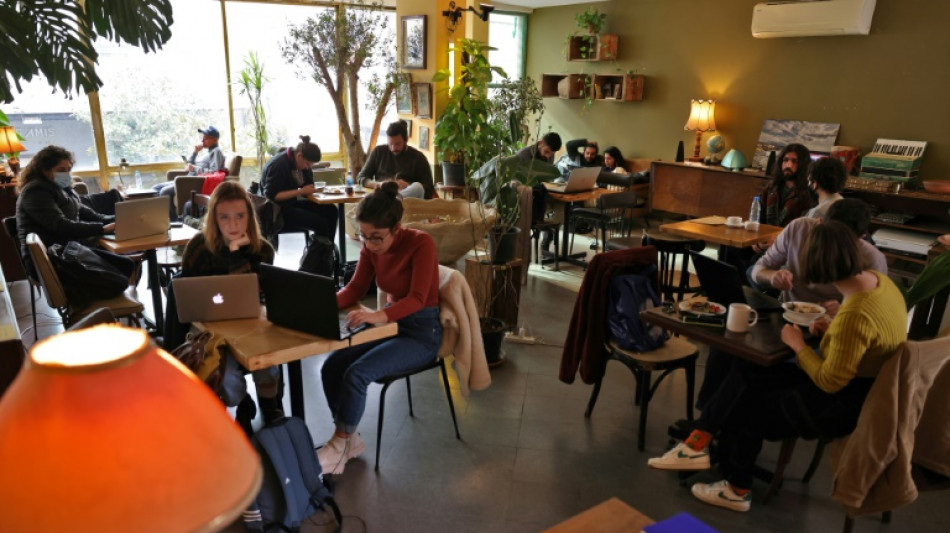
-
 UK counter-terrorism unit probes rappers Kneecap but music stars back band
UK counter-terrorism unit probes rappers Kneecap but music stars back band
-
Yamal heroics preserve Barca Champions League final dream

-
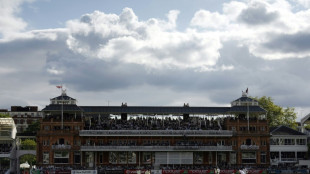 2026 T20 World Cup 'biggest women's cricket event in England' - ECB
2026 T20 World Cup 'biggest women's cricket event in England' - ECB
-
Bangladesh begins three days of mass political rallies
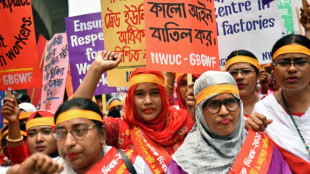
-
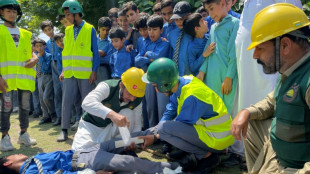 Children learn emergency drills as Kashmir tensions rise
Children learn emergency drills as Kashmir tensions rise
-
Millions of children to suffer from Trump aid cuts
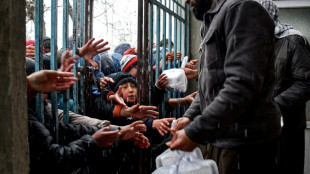
-
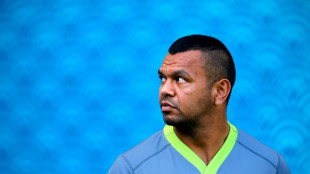 Veteran Wallaby Beale set for long-awaited injury return
Veteran Wallaby Beale set for long-awaited injury return
-
Syria's Druze take up arms to defend their town against Islamists

-
 Tesla sales plunge further in France, down 59% in April
Tesla sales plunge further in France, down 59% in April
-
US calls on India and Pakistan to 'de-escalate'

-
 Israel reopens key roads as firefighters battle blaze
Israel reopens key roads as firefighters battle blaze
-
Europe far-right surge masks divisions

-
 James will mull NBA future after Lakers playoff exit
James will mull NBA future after Lakers playoff exit
-
Ukraine's chief rabbi sings plea to Trump to side with Kyiv

-
 Australian mushroom meal victim 'hunched' in pain, court hears
Australian mushroom meal victim 'hunched' in pain, court hears
-
Lakers dumped out of playoffs by Wolves, Rockets rout Warriors

-
 Booming tourism and climate change threaten Albania's coast
Booming tourism and climate change threaten Albania's coast
-
US reaching out to China for tariff talks: Beijing state media

-
 Tariffs prompt Bank of Japan to lower growth forecasts
Tariffs prompt Bank of Japan to lower growth forecasts
-
Kiss faces little time to set Wallabies on path to home World Cup glory

-
 Serbian students, unions join forces for anti-corruption protest
Serbian students, unions join forces for anti-corruption protest
-
Slow and easily beaten -- Messi's Miami project risks global embarrassment

-
 Fan in hospital after falling to field at Pirates game
Fan in hospital after falling to field at Pirates game
-
Nuclear power sparks Australian election battle

-
 Tokyo stocks rise as BoJ holds rates steady
Tokyo stocks rise as BoJ holds rates steady
-
Bank of Japan holds rates, lowers growth forecasts

-
 'Sleeping giants' Bordeaux-Begles awaken before Champions Cup semis
'Sleeping giants' Bordeaux-Begles awaken before Champions Cup semis
-
Napoli eye Scudetto as Inter hope for post-Barca bounce-back

-
 Germany's 'absolutely insane' second tier rivalling Europe's best
Germany's 'absolutely insane' second tier rivalling Europe's best
-
PSG minds on Arsenal return as French clubs scrap for Champions League places

-
 UK WWII veteran remembers joy of war's end, 80 years on
UK WWII veteran remembers joy of war's end, 80 years on
-
Myanmar junta lets post-quake truce expire

-
 Rockets romp past Warriors to extend NBA playoff series
Rockets romp past Warriors to extend NBA playoff series
-
Messi, Inter Miami CONCACAF Cup dream over as Vancouver advance

-
 UN body warns over Trump's deep-sea mining order
UN body warns over Trump's deep-sea mining order
-
UK local elections test big two parties

-
 US judge says Apple defied order in App Store case
US judge says Apple defied order in App Store case
-
Seventeen years later, Brood XIV cicadas emerge in US

-
 Scorching 1,500m return for Olympic great Ledecky in Florida
Scorching 1,500m return for Olympic great Ledecky in Florida
-
Israel's Netanyahu warns wildfires could reach Jerusalem

-
 Istanbul lockdown aims to prevent May Day marches
Istanbul lockdown aims to prevent May Day marches
-
Moderna Reports First Quarter 2025 Financial Results and Provides Business Updates

-
 DEA Unconstitutional Marijuana Hearing - MMJ to File Emergency Injunction and Suit for Irreparable Harm
DEA Unconstitutional Marijuana Hearing - MMJ to File Emergency Injunction and Suit for Irreparable Harm
-
Formation Metals Announces Appointment of Adrian Smith to Advisory Committee

-
 Cerrado Gold Announces Q4 And Annual 2024 Financial Results
Cerrado Gold Announces Q4 And Annual 2024 Financial Results
-
Australian guard Daniels of Hawks named NBA's most improved

-
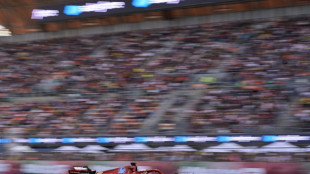 Mexico City to host F1 races until 2028
Mexico City to host F1 races until 2028
-
Morales vows no surrender in bid to reclaim Bolivian presidency
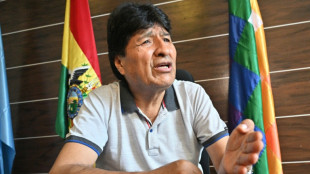
-
 Ukraine, US sign minerals deal, tying Trump to Kyiv
Ukraine, US sign minerals deal, tying Trump to Kyiv
-
Phenomenons like Yamal born every 50 years: Inter's Inzaghi


Lebanon power cuts turn cafes into co-working spaces
The music is often hushed and the atmosphere studious -- for the patrons filling Beirut's cafes these days, the most important things are good lighting and stable wi-fi.
That's because they now serve as substitute workplaces for people grappling with drastic electricity shortages and internet cuts stemming from Lebanon's unrelenting economic crisis.
Aaliya's Books, in the heart of the capital's once-fabled nightlife spot of Gemmayzeh, is one such sanctuary.
"Most of the time, if I come here, it's because I don't have electricity at home," said Maria Bou Raphael, nestled on a sofa.
The power cuts, extending to 23 hours a day, have left many already deprived of an office by Covid restrictions with no option but to plant themselves in cafes all day, especially as the quality of many internet connections has also plummeted.
Generators -- the only way to keep devices charged and connected -- are too expensive for many Lebanese, as they grapple with an economic crisis that has seen the local currency lose more than 90 percent of its black market value in recent years.
Cafes are therefore among the few businesses to have largely bucked the wider meltdown driven by corruption, capital flight and would-be donors' reluctance to throw good money after bad.
Aaliya's Books manager Niamh Flemming Farrell said that on weekdays her establishment feels more like a co-working space, with some customers staying for a full day.
The sense of community created by the service that she provides to the neighbourhood is reviving a cafe culture that had faded in recent years.
Doubling up as a bookshop, the cafe takes its name from Aaliya Saleh, the central character in "An Unnecessary Woman", a novel by acclaimed Lebanese-American author Rabih Alameddine.
The narrative focuses on a 72-year-old who lives secluded in her Beirut flat, in the sole company of her books while the 1975-1990 civil war rages outside.
- 'Relaxed spot' -
"We noticed that... our customers started working additional hours in our branches, fancying the locations that provide a higher level of comfort," said a spokesman for Cafe Younes, a roastery with 10 coffee shops mostly in the capital.
Cafe Younes opened a new large branch in Beirut's central Hamra district a year ago that includes a multi-purpose study room with large desks each equipped with power sockets.
Barzakh is another multi-purpose cafe that opened recently on the first floor of a busy building on the Hamra thoroughfare.
Hamra used to epitomise a Beirut cafe culture that had its heyday in the 1960s but was gradually wiped out by bars conducive to more boisterous socialising.
"I can see people running and yelling (outside) but I'm sitting here quietly in a relaxed spot," said fashion design student Mustafa al-Sous said, sitting beside a large window.
The young man sees Barzakh as a haven from the doom and gloom that has been so pervasive across Lebanon in recent years, but also as a place where he can work.
Notebooks and laptops clogged the tables in this cafe, while tangled charger cables strewn across the floor threatened to trip waiters.
"Originally we wanted to ban laptops," Mansour Aziz, the founder of the cafe-cum-library, which also hosts live shows in the evenings, recalls with a disbelieving smile.
Many here, dragged out of their homes by the electricity crisis, now rely on the cafes for their social life, especially those who can no longer afford to party in the evenings.
At Barzakh, patrons will often greet each other with a nod from across the room and come to know each other gradually.
"I'm a very sociable person," Mustafa said. "I like it when people walk over to ask me what I'm working on."
M.Thompson--AMWN